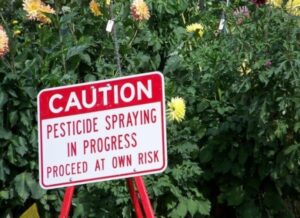French Study Reveals Cutting Pesticide Use in Half Won’t Affect Crop Yields

Promising new research coming out of France shows that a dramatic reduction in pesticide use can be achieved without a negative impact on crop yields, according to the Pesticide Action Network of North America.
As the world’s third largest consumer of pesticides, France is in the midst of a legal battle with the European Commission, who’s claiming that the country has not taken adequate measures to prevent water contamination from pesticide use. But, the new research, which shows that chemical applications could be cut in half, could not only help to alleviate future contamination risks, but also decrease the financial burdens on farmers who purchase the pesticides. PANNA reports that “a 30% reduction could be achieved without reducing productivity or the margins received by farmers. And a 50% reduction caused only a 5-10% drop in yield.”
And according to the organization, it’s not just France that could benefit: “Similar studies here in the U.S., from Pennsylvania to Iowa and California, also demonstrate excellent yields when pesticide use is dramatically reduced. In Iowa, for example, researchers found that pesticide and fertilizer use can be reduced by an impressive 70% or more with no loss in yields.”
Does decreased pesticide use mean more of these farms will be organic? Not necessarily, as organic certification costs money, and requires the employment of more methods than just the absence of pesticides, but PANNA states that decreasing pesticides, and other sustainable practices “can produce very good yields” with many advantages, and lead farmers in the direction of transition to 100 percent organic. “Soil Association research suggests that organic farming can offer a solution to many of the current failures of non-organic farming, such as dependence on high-energy use, high levels of greenhouse gas emissions and widespread pollution.”
Keep in touch with Jill on Twitter @jillettinger
Image: jetsandzeppelins

